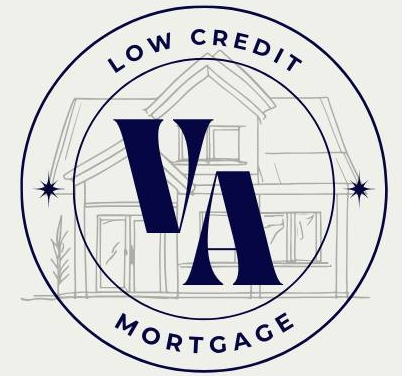Common Mortgage Mistakes to Avoid
Navigating the mortgage process can be a daunting experience, especially for first-time homebuyers. While securing a mortgage is a critical step toward homeownership, it requires careful planning and attention to detail. Making mistakes during this process can lead to financial strain, delays, or even the loss of your dream home. Understanding and avoiding common mortgage pitfalls is essential for a smooth and successful home-buying experience. This article explores the most frequent errors and offers financial tips to help you steer clear of them.
Failing to Check Your Credit Score
Your credit score is one of the most important factors lenders consider when evaluating your mortgage application. A low score can result in higher interest rates, larger down payments, or even denial of the loan. Many buyers make the mistake of not reviewing their credit reports before applying for a mortgage, only to discover issues that could have been addressed earlier.
Checking your credit score well in advance allows you to identify and resolve any inaccuracies or weaknesses. Paying down debt, disputing errors, and ensuring timely payments can improve your score and position you for better loan terms. Ignoring this step can limit your options and increase the overall cost of borrowing.
Overlooking Mortgage Pre-Approval
Skipping the pre-approval process is a common mistake that can complicate your home search. Without pre-approval, you may not have a clear understanding of how much you can afford, leading to unrealistic expectations and wasted time. Additionally, sellers often prioritize offers from pre-approved buyers, as it demonstrates financial readiness and reduces the risk of financing issues.
Mortgage pre-approval provides clarity on your budget and strengthens your position in a competitive market. It also helps you identify potential financial challenges early, giving you time to address them before making an offer. Failing to secure pre-approval can result in missed opportunities and unnecessary stress.
Not Comparing Lenders and Loan Options
Many buyers make the mistake of working with the first lender they encounter, without exploring alternative options. Different lenders offer varying interest rates, fees, and loan programs, and failing to shop around can cost you thousands of dollars over the life of your mortgage.
Comparing multiple lenders allows you to find the best terms for your financial situation. Pay close attention to interest rates, closing costs, and any additional fees. Working with a lender who understands your needs and provides clear communication is also crucial for a positive experience. Rushing this step can lead to unfavorable terms and long-term financial strain.
Underestimating the Total Cost of Homeownership
One of the biggest pitfalls in the mortgage process is focusing solely on the monthly payment and neglecting the additional costs of homeownership. Property taxes, homeowners insurance, maintenance, and utilities can add up quickly, significantly impacting your budget. Buyers who fail to account for these expenses may find themselves financially overextended.
Creating a comprehensive budget that includes all potential costs ensures you are fully prepared for homeownership. Consider setting aside funds for unexpected repairs or emergencies, as these expenses are an inevitable part of owning a home. Ignoring these costs can lead to financial stress and difficulties managing your mortgage payments.
Making Major Financial Changes During the Application Process
Once you have started the mortgage application process, maintaining financial stability is critical. Making major changes, such as switching jobs, taking on new debt, or making large purchases, can jeopardize your approval. Lenders evaluate your financial profile at multiple stages, and any significant changes can raise concerns about your ability to repay the loan.
To avoid complications, refrain from making major financial moves until after closing. If changes are unavoidable, communicate with your lender to understand how they may impact your application. Disrupting your financial stability during this time can result in delays, higher costs, or denial of the loan.
Choosing the Wrong Loan Type
Selecting the right type of mortgage is essential for aligning your loan with your financial goals. Some buyers make the mistake of opting for a loan without fully understanding its terms and implications. For example, adjustable-rate mortgages (ARMs) may offer lower initial rates but carry the risk of rate increases over time, which can lead to higher payments.
Understanding the differences between fixed-rate mortgages, ARMs, and government-backed loans is crucial for making an informed decision. Consider factors such as the length of time you plan to stay in the home, your risk tolerance, and your long-term financial goals. Choosing the wrong loan type can result in higher costs and financial stress in the future.
Overextending Your Budget
It’s easy to fall in love with a home that stretches your budget, but overextending yourself financially is a common mistake with serious consequences. Buyers who take on mortgages that exceed their affordability may struggle to manage payments, leading to missed payments or foreclosure.
Sticking to a realistic budget ensures you can comfortably manage your mortgage and other financial obligations. Consider using the 28/36 rule, which suggests that your housing costs should not exceed 28% of your gross monthly income and your total debt payments should stay below 36%. Overcommitting financially can hinder your ability to achieve other goals and enjoy homeownership.
Ignoring the Importance of a Down Payment
The size of your down payment plays a critical role in shaping your mortgage terms and long-term costs. Many buyers underestimate the benefits of a larger down payment, such as lower monthly payments, reduced interest costs, and avoiding private mortgage insurance (PMI). Conversely, some buyers exhaust their savings to make a larger down payment, leaving them financially vulnerable.
Balancing your down payment with your need for financial flexibility is key. While a higher down payment offers advantages, it’s important to maintain an emergency fund for unexpected expenses. Failing to plan your down payment strategy carefully can lead to unnecessary financial stress.
Neglecting to Read the Fine Print
Mortgage documents are often lengthy and complex, but failing to read and understand the terms can lead to costly surprises. Buyers who overlook the fine print may miss important details about interest rate adjustments, fees, or prepayment penalties.
Taking the time to review your loan documents thoroughly ensures you are fully aware of your obligations and potential risks. Ask your lender to clarify any terms or conditions you do not understand. Ignoring this step can result in unexpected costs and financial challenges down the line.
Conclusion
Avoiding common mortgage mistakes is essential for a smooth and successful home-buying journey. By checking your credit score, obtaining pre-approval, comparing lenders, and understanding the total cost of homeownership, you can navigate the process with confidence. Maintaining financial stability, choosing the right loan type, and carefully reviewing your documents further enhance your chances of success. With careful planning and attention to detail, you can secure a mortgage that supports your financial goals and enjoy the rewards of homeownership.

